Embyro Donation
Frequently Asked Questions
Quick Search
Remaining Embryos
What Are Our Options?
What are my choices regarding my remaining embryos?
You created your embryos with love, and the hope and dream of a child. You may not have anticipated having remaining embryos and may find yourself feeling overwhelmed with the decision for their future.
You have four options for your remaining embryos:
Donate to a recipient family
Embryo donation and adoption is a great way to help another family with the same hopes and dreams of a child, while giving your embryos an opportunity to be born into a loving family. The donation process can be anonymous or you may choose the family who receives your embryos.
Several agencies and clinics have programs to assist you. Our website contains detailed information, videos and personal stories about embryo donation and adoption.
Donate for scientific research
Frozen embryos are used by scientists for experiments, including embryonic stem cell research. Talk to your physician to understand the qualification process and available programs.
Thaw and discard
You may choose to discard your remaining embryos. Your clinic can explain their policies and procedures regarding this choice. Some families choose to have remaining embryos thawed and transferred into the mother’s womb at a non-fertile time period or choose have a ceremony to commemorate the embryos as they are thawed.
Keep the embryos frozen
Families who choose to keep their embryos frozen may not be done with their family building or may be facing unexpected personal issues that make it easier to simply keep them frozen. Embryos have no known ‘expiration date.’ Children have been born from embryos that have been frozen for more than 20 years.
You will pay an annual storage fee to your clinic or you may move your embryos to an off-site cryo-bank for long term storage.
Why would placing families choose embryo adoption instead of donation?
Embryo adoption agencies provide the same safeguards that the traditional adoption process offers. The placing family knows the adoptive family they have chosen has been screened for a criminal history and child abuse records, as well as educated about how to parent an adopted child. The placing parents have the peace of mind of having personally selected a family to raise their genetic child. They also have the opportunity to have contact with the adopting family to whatever extent both families are comfortable. The children in both families (full genetic siblings) would also have the opportunity to connect later on if they desired.
How is embryo adoption different than embryo donation?
Embryo donation programs are generally managed by fertility clinics, which receive donated embryos to be given anonymously to whomever the clinic chooses. There are also programs that match embryo donors to embryo recipients and refer to the process as embryo donation because they prefer not to see it as an adoption.
Embryo adoption programs work with families who would like to give their remaining embryos to another family for reproduction (embryo donation) and help families who would like to receive embryos to achieve a pregnancy (embryo adopters) Embryo adoption organizations regard the process as equivalent to a traditional adoption since the hoped-for outcome is the birth of a child that is not genetically related to the adopting family. The same safeguards provided by a traditional adoption are applied.
What are the benefits of embryo donation through an adoption agency?
Embryo adoption agencies, unlike typical embryo donation programs, offer families the same safeguards and education available in a traditional adoption. This includes an adoption home study, which is conducted for the adopting family and includes criminal screening and adoption education.
They allow both the donor and adoptive families to participate in the match selection, and can be involved as much or as little as they want. In an anonymous embryo donation, most often a doctor in a clinic decides to whom embryos are given.
An agency also recognizes the importance of counseling for all parties involved, especially counseling to the adoptive family on the best approaches to educating their child regarding their adoption.
Embryo adoption is not recognized as an adoption by law, but as an exchange of property. An agency already has in place a set of legal documents that can be customized to fit each embryo adoption situation. These legal documents are well organized and contain all of the special considerations for embryo adoption.
The adoption agency will also help coordinate the transportation of embryos from the donating family’s clinic to the adoptive family’s clinic in the safest possible way.
An adoption agency will provide the families with post-adoption counseling assistance as well as provide a support network with other embryo donating and adopting families. They may also assist in communication between the two families as agreed upon in their adoptive agreement.
What are the benefits of embryo donation through an adoption agency?
Embryo adoption agencies, unlike typical embryo donation programs, offer families the same safeguards and education available in a traditional adoption. This includes an adoption home study, which is conducted for the adopting family and includes criminal screening and adoption education.
They allow both the donor and adoptive families to participate in the match selection, and can be involved as much or as little as they want. In an anonymous embryo donation, most often a doctor in a clinic decides to whom embryos are given.
An agency also recognizes the importance of counseling for all parties involved, especially counseling to the adoptive family on the best approaches to educating their child regarding their adoption.
Embryo adoption is not recognized as an adoption by law, but as an exchange of property. An agency already has in place a set of legal documents that can be customized to fit each embryo adoption situation. These legal documents are well organized and contain all of the special considerations for embryo adoption.
The adoption agency will also help coordinate the transportation of embryos from the donating family’s clinic to the adoptive family’s clinic in the safest possible way.
An adoption agency will provide the families with post-adoption counseling assistance as well as provide a support network with other embryo donating and adopting families. They may also assist in communication between the two families as agreed upon in their adoptive agreement.
How is surrogacy different from embryo adoption and donation?
With surrogacy, an agreement is made for embryos to be transferred into a woman’s uterus, and she carries the pregnancy for the benefit of the intended parents. The intended parents create embryos via in vitro to be transferred into the surrogate, using either their own gametes or purchased donor gametes. Or the surrogate may be impregnated via intrauterine insemination with the intended father’s semen and her own eggs. Each state within the U.S. has its own set of laws for managing surrogacy.
Compare that to embryo adoption and donation, where the adopting mother herself carries the child or children. The donor family relinquishes their rights to any children born from the embryos prior to the adoptive family’s first frozen embryo transfer. The child that the adopting mother carries and gives birth to is the child she and the adopting father will parent. They will be named the legal parents on the birth certificate before leaving the hospital.
Where should we store our remaining embryos through the donation process?
Many clinics will freeze and store your embryos at their facility for an annual fee.
Some clinics will only store embryos for a certain number of years, while others may only store them on-site for one year and then automatically transfer them to a long-term storage facility. Several cryo-banks have been established for long-term storage of embryos and other human tissues, often offering storage at much more affordable rates than are available at fertility clinics.
What will happen to my frozen embryos if I choose not to donate them to another family?
We understand the difficult decision parents are faced with when they realize they have embryos they do not plan to use for their own family building. Should you choose not to donate your embryos, the other options are to donate them for scientific research, thaw and discard them, or keep them in storage until a later time.
If none of those options feel right, perhaps you should reconsider the compassionate and caring option of helping another family facing infertility. Embryo donation and adoption provides a way for you to select a family who will receive your embryos. You can be involved as little or as much in the matching process as you would like.
Are there limits regarding the acceptance of donated embryos?
Most embryo adoption agencies will accept all embryo donations regardless of the genetic mother’s age, length of time in storage, embryo grading or stage of embryo development. All of these factors will be disclosed to the potential adopting family as a part of the matching process, but do not necessarily guarantee if they will be successful with their FETs. Many recipient families have had children from embryos that have been frozen for over 20 years.
I have a single remaining embryo. Can I still donate it?
Absolutely! Be sure to take time to research which adoption agencies or embryo donation programs accept single embryo donations.
Are there recipient families who would be interested in embryos where there is limited medical background information?
Yes, there are recipient families who are willing to work with a situation where there is limited information available on the donated embryos. This type of situation is very similar to a domestic infant adoption where the expectant mother doesn’t know the identity of the biological father.
If we used an anonymous egg or sperm donor when we created our embryos, can we still place them for adoption?
If the contract you signed with the donor does not specify that the eggs/sperm are for your personal reproductive use only, you can place the embryos with another family.
If you are working with an embryo adoption agency, they can likely assist you through the process of obtaining the required documentation to place your embryos.
In addition, you will also need to provide any information you have about the donor (i.e. donor profile). Verification of the donor’s infectious disease screen results must be obtained from either the donor agency or your clinic.
Our embryologist said our embryos are not good quality. Can we still give them to another family?
Some programs have eligibility requirements for embryos, while others do not; be sure to research all your options.
Embryo adoption programs tend to be more open to receiving any number or quality of embryos and work diligently to place all embryos in loving families.
Many healthy children have been born from embryos given a poor-quality grading. Quality of an embryo does not guarantee pregnancy.
How long can embryos be used after they are frozen?
Frozen embryos do not have a “shelf-life.” The gamete tissue is frozen and would be ready for implantation after thawing when the adoptive family is ready for their frozen embryo transfer. Embryo that have been frozen for over 20 years have resulted in healthy pregnancies and babies.
Can we stipulate in our will that our remaining embryos should be donated?
It’s great that you are thinking about contingency plans for remaining embryos in the event of an unexpected life change such as death or divorce. Making decisions for the embryos’ future now is an important step.
Some embryo adoption agencies will allow you to complete their application to be then kept on file for future use. We would recommend that you select an agency to work with in that event and determine what steps you will need to take in order for them to assist you in setting up this plan for your embryos.
Can We Place Our Embryos For Adoption?

Frozen 6 Years

Frozen 27 Years
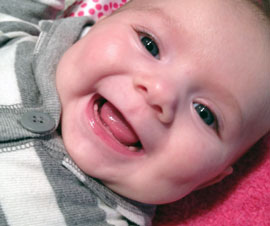
Frozen 7 Years
Genetic Mother Age 36
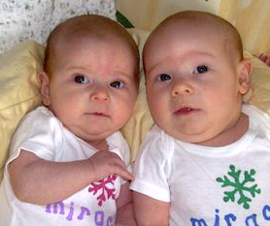
Frozen In 1997
Thawed 13 years later in 2010
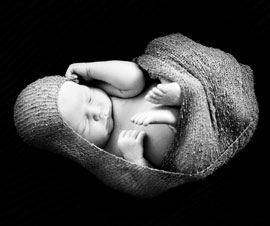
Frozen 8 Years
Single embryo transfer
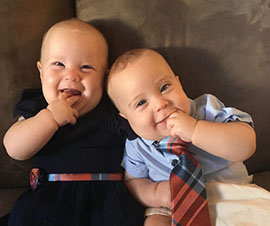
2pn Embryos-First Frozen in 2009
Thawed & Refrozen in 2017-Day 3 Embryos-Born 2019
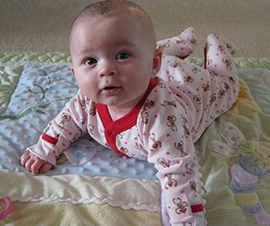
Frozen 11 Years
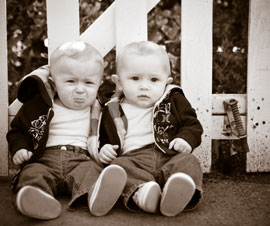
Frozen 6 Years
Day 3 embryos
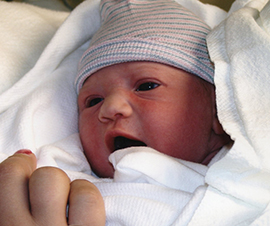
Frozen in 2002
Day 3 Embryo
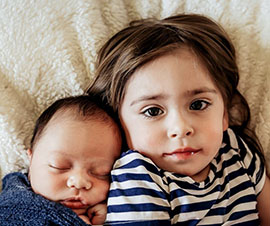
Frozen 11 & 13 Years
Blastocysts Slow Frozen in 2006
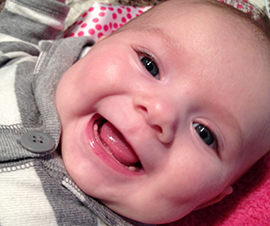
Frozen 7 Years

Frozen in 1997
Thawed 4 years later
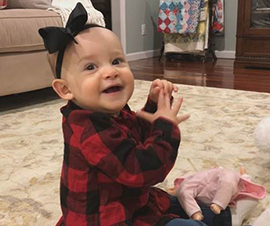
Frozen 24 Years
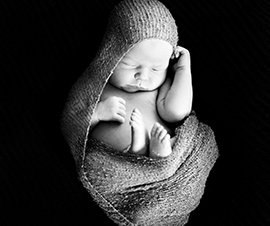
Frozen 8 Years
Day 3 Embryo
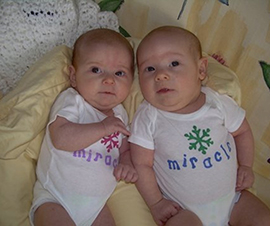
Frozen in 1997
Thawed 13 years later
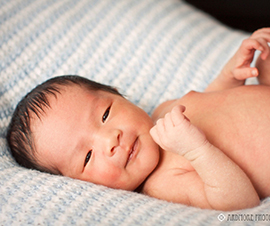
Frozen 4 Years

Frozen 15 Years
Slow Frozen in 2003 - Blastocyst

Single Embryo Transfer

Frozen 17 Years
Day 2 Embryos-Slow Frozen in 2002
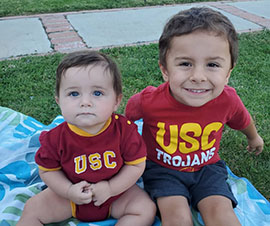
Frozen 21 & 23 Years
Slow Frozen in 1995-Day 2 Embryos

Frozen 10 Years
Slow Frozen in 2009-Day 3 Embryos

Frozen 13 Years
Slow Frozen in 2006-Day 3 Embryos
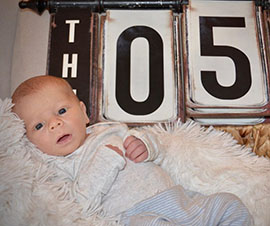
Frozen 12 Years
Vitrified in 2008 - Day 5 Blastocyst

Frozen in 2010
Slow-frozen Blastocysts
The Process
How Do We Donate Our Embryos?
How do we donate our embryos to another couple?
The first step is to select an agency or clinic program. Or you may choose to “self-match” with a family. It is important to research and select a program that meets your needs.
When working with a program you will be asked to complete forms regarding yourselves, and include additional information if an egg or sperm donor was used. You will also provide information about your preferences regarding the adoptive family (dependent on if the program you work with allows you to have these preferences.
After you are matched with a family, you will complete legal contracts, relinquishing the rights to the embryos to the adoptive family. Embryos are not given to the adopting family until these contracts are completed to your satisfaction.
Will my embryos be donated to multiple recipient families?
It is in the best interest of the children involved that all of the donor’s embryos be placed with one adoptive family. In an embryo adoption program, should the adoptive family complete their family building without using all of the embryos, the embryos should be returned to the program. Every embryo adoption program has differing policies regarding the returned embryos.
When a fertility clinic is managing an anonymous, non-directed donation, they will determine how the embryos are distributed to recipients. Embryos from one donor may be given to multiple recipients at one time.
Do we need to update our lab work if we wish to donate our embryos?
Yes, the genetic parents of the embryos are required to have completed the full FDA Reproductive Donor Panel of infectious disease testing.
Typically, the costs of completing this required testing are covered by the program you are placing your embryos through.
How long does it take for our embryos to be matched with an adoptive family?
While this varies a bit between each embryo adoption program, it is common for it to take anywhere between 5 – 9 months from when you complete your application to the embryos being shipped to the recipient family’s clinic.
This allows time for you to complete the FDA-mandated lab work and the program to find a match, secure clinic approval, finalize the legal documents, and coordinate the embryo shipment.
What is an anonymous embryo donation?
An anonymous donation occurs when donor and recipient identities remain unknown. No contact is made between the donor and the recipient, either now or in the future.
Anonymous donation most often takes place through an IVF clinic, but may also take place through an adoption agency. Most clinics that have an embryo donation program provide very limited information to the recipients about the donors. Donors are rarely involved in the process of selecting recipients but are sometimes permitted to set stipulations for eligibility to receive their donation.
What type of information will the donor family receive about the adoptive family?
When you are working with an embryo adoption agency to place your embryos, you can control how much information you receive about the adopting family. Some donor families simply like to know the adoptive family has been vetted through the home study process and allow the adoption agency to select the adoptive family on their behalf.
Other families prefer to choose the adoptive family themselves. If you want to be a part of the selection process, you will receive a profile from the adopting family which typically shares their fertility journey, details about what their family life, and photos.
Each agency follows its own process for matching donors to adopters, but generally you have an opportunity to set parameters around the characteristics you hope to find in the adopting family: age, length of marriage, income, other children in the home, education, etc.
When you donate embryos through an anonymous fertility clinic donation program you will not receive information about the recipient family.
How are placing and adopting families matched?
The matching process through an agency includes the following steps:
- Both donating and adoptive parents provide the agency with information about themselves and indicate the type of adoptive/donating family they desire.
- Both parties indicate their preferences regarding the age, income, post-birth work plans, religion, prior marriages, existing children in the family, and race of the adopting families as well as their desire for future contact.
- Assuming an adoptive family matches these criteria, their introductory letter, biography, and photographs are sent to the donor family for consideration and possible match.
- If the donors show interest in the match, their profile information (introductory letter, biography, and photographs), and medical health history are sent to the adoptive family for their consideration and possible match.
Clinic donation programs frequently do not accommodate personalized matching and embryos are frequently distributed by the medical staff to patients on their embryo waiting list. There are online self matching programs. Matches have also been arranged via social media or friends and family.
While self-matching may sound appealing it does not take into consideration the legal, medical, and clinic coordination requirements to allow the embryos to be used by the recipient couple.
If we place our embryos for adoption, will we be able to know if a pregnancy occurred for the receiving family?
Embryo adoption programs through an adoption agecny will allow you to know if a pregnancy occurred and even receive information about the child after birth if you desire.
If you place your embryos anonymously through a clinic donation program it is unlikely you will be informed about any pregnancies from your embryo donation.
Matching Your Embryos With The Adopting Family
Who Is The Adopting Family?
Why would adopting parents choose embryo adoption instead of domestic adoption?
The most obvious difference between an embryo adoption and domestic adoption is the pregnancy experience. Adoptive mothers are able to experience the joys (and challenges!) of pregnancy, prenatal bonding, and childbirth. They also have peace of mind knowing their children received the appropriate prenatal care and were not exposed to alcohol or drugs during pregnancy.
There are certain considerations involved in embryo adoption that are not present in domestic adoption. For instance: Embryo adoption does not ‘guarantee’ a live birth. On the other hand, when more than one embryo is transferred, an adoptive couple might have twins or even triplets.
In addition, there is no need for a finalization hearing for the adoptive family. The embryos, under U.S. law, are the legal property of the adoptive family before any embryo transfers are scheduled and the donating parents have relinquished all parental rights.
Are the recipient families screened before they are matched?
In most embryo donation programs, the recipient family is screened for infectious diseases and for general reproductive health. In addition, some clinic donation programs will require psychological evaluations.
Embryo adoption programs will provide the most thorough evaluation of the adopting family, including a criminal background check. They will also provide the adoptive family with training in how to be a successful as an adoptive parent. The agency is also available to provide the adoptive family with assistance in the future as the child grows.
Legalities
Will we have any legal responsibility for any children born to the adoptive family?
Embryo donors are not legally responsible for children born from the embryos to the adoptive family. Under U.S. law, the legal agreement is an exchange of property between the two parties. Once completed the adopting family bears all responsibility for any children born from the embryos, and the donating family relinquishes all parental rights.
An experienced attorney or adoption agency retaining legal expertise should be a part of any embryo adoption agreement.
What legal documents are used to transfer the embryos to the adoptive family?
Necessary legal documents will include the following: A document relinquishing the donor family’s rights and responsibilities to the embryos and any children born from those embryos, and a document allowing the recipients to assume all parental rights and responsibilities for the embryos and any children born from them.
Legally, what is the relationship between the adoptive parents and the adoptive child through embryo adoption?
At the time of birth, the adoptive family is fully recognized as the legal parents to any children who are born. The mother who physically gives birth is recognized as the legal mother and her partner to whom she is married at the time of pregnancy and birth is recognized as the other legal parent. These individuals are noted on the child’s birth certificate.
This is different in regards to surrogacy, which has its own set of codified legal contracts and requirements in the United States.
What are the legalities surrounding embryo adoption and donation?
The adoption process involves agreement and relinquishment forms, which are legal contracts between the donor and recipient families.
The contracts formalize the donor family’s relinquishment of their parental rights prior to the embryo being transferred to the recipient family.
Parties involved should note that embryos have a special legal status that is yet to be clearly defined. While many courts are reluctant to classify embryos as property, they also do not characterize them as human beings. As a result, embryo adoption programs may differ in how they define embryos in their legal agreements. Some may refer to embryo donation as a transfer of property while others may incorporate traditional adoption language into their legal documents.
Medical and Emotional Aspects of Donating Embryos
What kind of information will we need to provide about ourselves and our embryos?
You will need to contact the fertility clinic your embryos were created at and have them send over the embryology reports, the freezing and thawing protocols for the embryos, as well as infectious disease screens for the donating parents (or the egg/ sperm donor).
If the embryos were created through gamete donation, you will need to submit a copy of the contract you have with the donor(s), and the information given to you when you selected your donor.
Additionally, the agency or donation program may also request several generations back of medical history.
What is involved in an anonymous embryo donation?
An anonymous donation occurs when donor and recipient identities remain unknown. No contact is made between the donor and the recipient, either now or in the future.
Anonymous donation is most often associated through fertility clinics but may also take place through an embryo adoption program. Limited information will be provided to the recipients about the donor family. However, medical information about the donated embryos is always provided to the recipient when possible.
Donors are rarely involved in the process of selecting recipients through an anonymous donation but are sometimes permitted to set stipulations for recipient eligibility.
